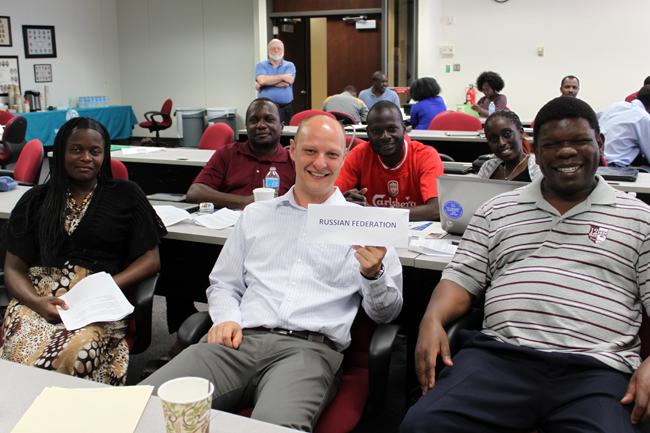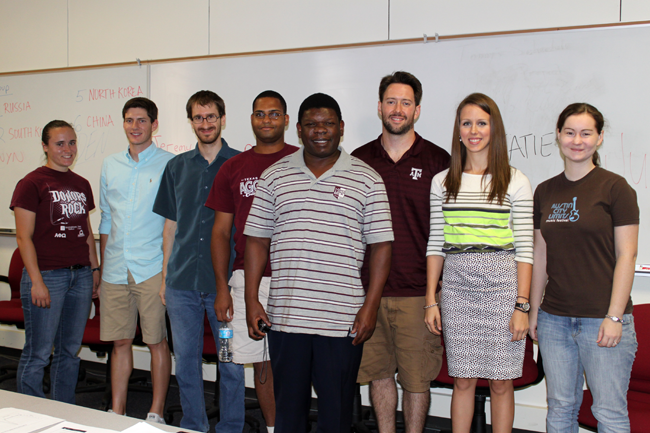
NSSPI faculty organized a series of lectures and exercises relating to nonproliferation and Safety, Security, and Safeguards (3S) for a group of twenty-nine Kenyans attending a Nuclear Power Institute (NPI) workshop from July 8 through August 8. The workshop was focused on building the capability in Kenya to embark on a nuclear power program, and current 3S standards and practices were presented to the group as fundamental requirements of any nuclear program. The participants in the workshop represented a wide range of professionals from the Kenyan government, academia, and the private sector.
NSSPI faculty member Dr. Alexander Solodov made a presentation to the Kenyan delegation on “Safeguards and the IAEA” and NSSPI Research Engineer Claudio Gariazzo gave them an introduction to Nuclear Security. Solodov, Gariazzo, and a group of NSSPI students also coordinated an exercise for the Kenyans in which they simulated the negotiation of the denuclearization of the Democratic People’s Republic of Korea (DPRK), or North Korea. The Kenyan delegation was split into 6 groups representing the nations involved in the on-going six-party talks: the United States, Russia, China, Japan, the Republic of Korea (ROK-South Korea), and the DPRK. With NSSPI staff as the unbiased moderator, the negotiation exercise sparked a lively debate in which participants represented “their” nation’s best interests in the midst of DPRK’s denuclearization. It was generally perceived that the participants gained an appreciation for the complexity of the current situation and the difficulty involved in attempting to scale back a nation’s nuclear ambitions and capabilities.
Other NSSPI staff members involved in the workshop included Dr. Sunil Chirayath, who gave a lecture on Small Modular Reactors, and Dr. Paulo Barretto, who led a series of lectures on the Nuclear Fuel Cycle.

The month-long workshop consisted of lectures, laboratory exercises, tours, visits to relevant organizations, facilities and plants, and group projects. Some of these activities included visiting the South Texas Project Nuclear Power Plant, meeting with key elected officials, visiting local community colleges with nuclear power technology teaching programs and high schools with NPI outreach programs, touring Disaster City and the Johnson Space Center, and visiting the Bush School of Government and Public Service and the TAMU power plant. The workshop also included presentations by top-level officials from the US Nuclear Regulatory Commission, the Department of Energy Office of Nuclear Energy, the International Atomic Energy Agency, and the Nuclear Decommissioning Authority.